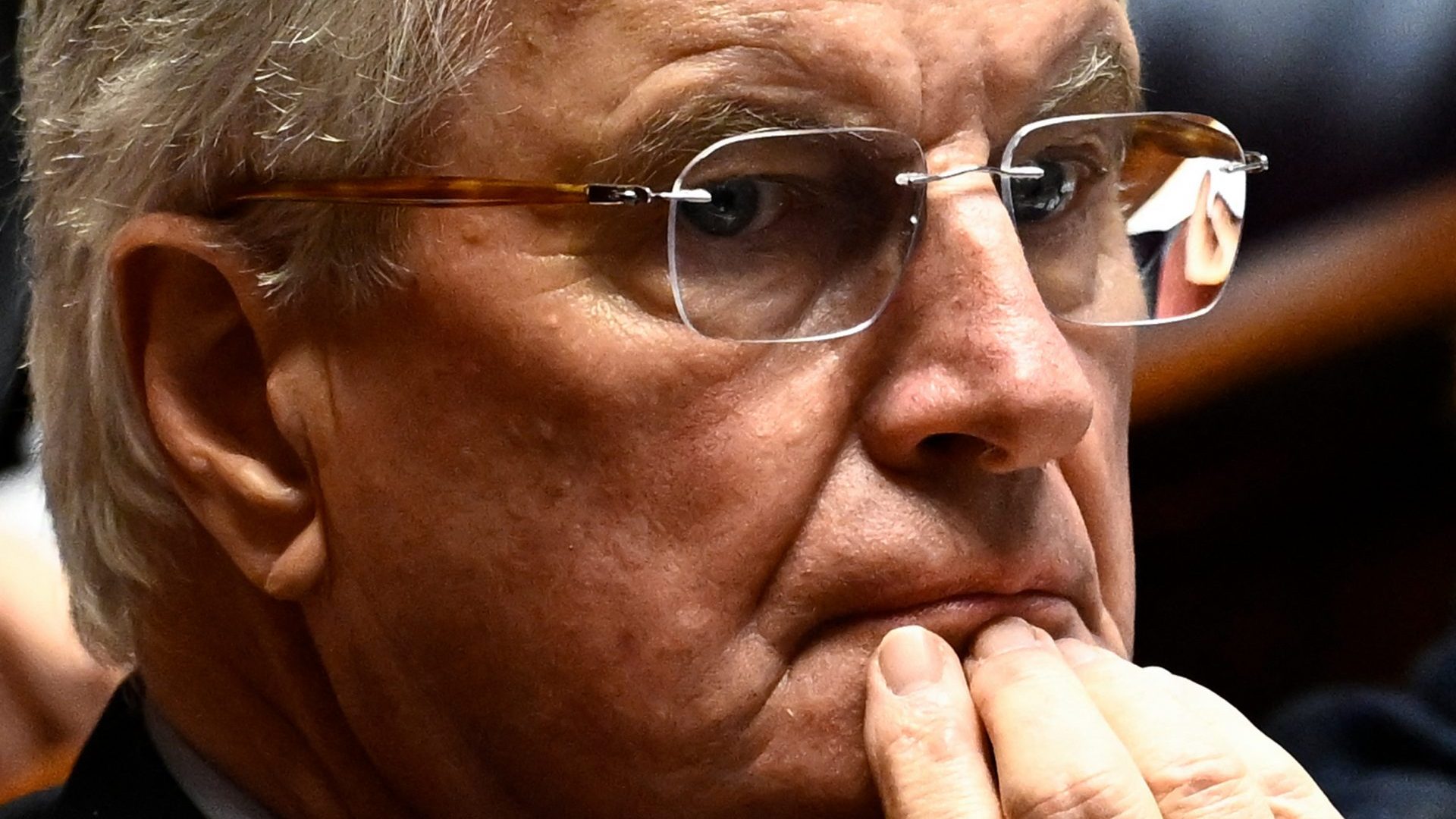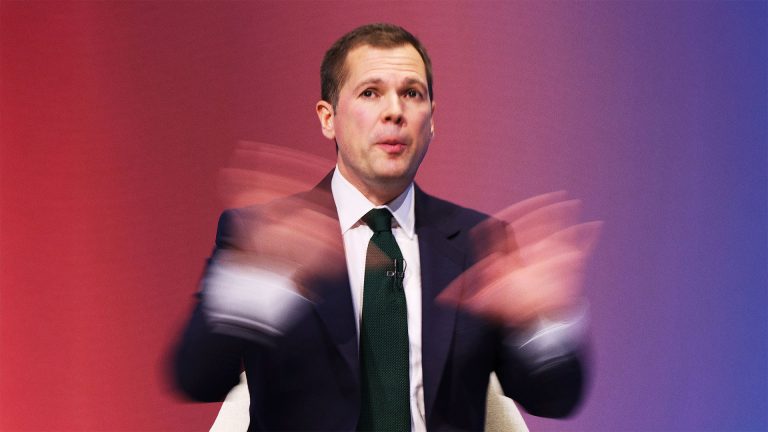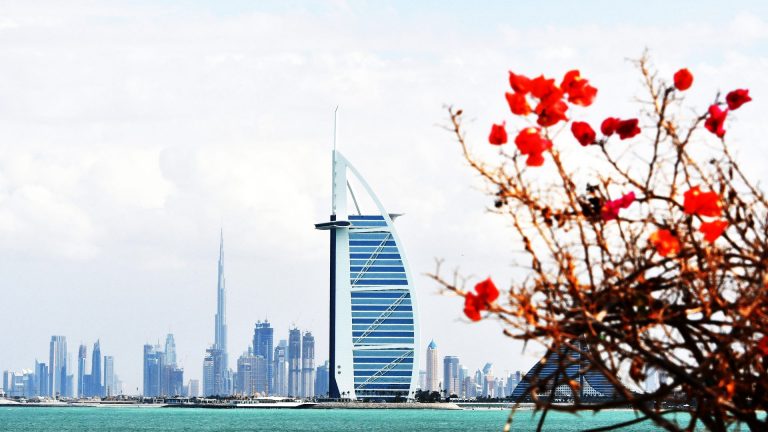The French government of Michel Barnier was pronounced dead on Wednesday night after just three months in office, and before it could even pass its relatively mild austerity budget. This marked the first time a prime minister and his administration had been thrown out by parliament since Georges Pompidou in 1962.
The vote of no confidence was crushing, with 331 votes out of 577 MPs, who cast their ballots via QR codes, following a rowdy series of mostly mediocre and inflammatory speeches.
It was a strange defeat, contrived and presided over by a gleeful Tweedledee and Tweedledum pair. Dubbed the sorcerers’ apprentices, they were far right merchant of disorder Marine Le Pen on the benches, and the Trotskyist left patriarch and rabble-rouser Jean-Luc Mélenchon, leering from the gallery like the Godfather at a funeral.
The 73-year-old former Brexit negotiator and minister Barnier warned parliament that the no-confidence vote would only render “everything more difficult and more serious” for France, and quoted the author and resistance hero Antoine de Saint-Exupéry. His predecessor as PM Gabriel Attal, 35, cited Democracy in America’s Alexis de Tocqueville on how “in politics communities of hatred almost always find common friendships”. Ecstatic National Rally MPs mimed clown gestures with tongues out and thumbs downs and France Unbowed’s crew jeered during the debate.
And while the Grand Guignol censure vote theatrics played out in the National Assembly, offstage in Saudi Arabia, the actual president smiled uncomfortably beneath his dark glasses. Except the surreal spectacle of Emmanuel Macron’s guided tour of an archaeological site evoked more The Clash’s Rock the Casbah than the serious leadership France desperately needs.
The epitaph headlines practically wrote themselves: “Veni, Vidi, Viré” (He came, He saw, He got fired) crowed Libération. Others followed suit with (Censure) “Motion Accomplished”.
The establishment conservative Barnier was a last-minute pick by Macron after six weeks of summer dithering following his disastrous dissolution of parliament.
The broad left had managed to form a fragile coalition with the Mélenchon France Unbowed far left to block Le Pen’s National Rally from winning the legislative elections in July.
But then they failed to agree on a prime minister. The New Popular Front even ruled out consensus figures from their own Socialist Party ranks like former Hollande minister Bernard Cazeneuve. Barnier entered with experience, old-school fustiness and a mission to bring down the ballooning deficit, if little inspiration.
But he soon found himself outmanoeuvred, making numerous concessions to Le Pen in a bid to get his budget passed. The National Rally leader played him masterfully, continually upping her demands before ensuring his downfall.
The censure vote and the overthrow of Barnier’s government was orchestrated by a shady convergence between Le Pen and her National Rally and Mélenchon and his France Unbowed. These two political veterans, both of whom have long harboured presidential ambitions after multiple failed attempts, and thrive on chaos, are ostensibly ideological opposites. In reality, they share much common ground well beyond their mutual hatred of Macron.
“People who unite to bring down the government should have the consistency and honesty to also unite to propose an alternative government together,” quipped the philosopher and writer Raphaël Enthoven.
“The National Rally and France Unbowed agree on Nato, the EU, Syria, Russia, Ukraine, Macron, the media, the (protest movement) yellow vests, vaccines, pensions… Apart from Israel, wokeism and migrants, they agree on everything. How could they fail to team up after joining up in their votes?”
Le Pen of course pretended in her censure speech to mock the extreme left as high on a “Che Guevara carnaval”. Yet she has abandoned any pretence of respectability, annexing much of the formerly democratic hard right and embracing disorder as a strategy. Mélenchon, for his part, has absorbed and forced the mainstream left into submission, turning it into a tool for disruption.
As Caroline Fourest, director of Franc-Tireur weekly, wrote, “Madame Le Pen has shown she’s not a stateswoman, just as Jean-Luc Mélenchon is not a statesman: they’re leaders of packs, clans, populists.” Their Faustian pact revealed how both factions prioritised irresponsibility over governance, willing to sow instability and undermine the Republic for their own ends.
“This is not governance; it is blackmail,” Fourest said of the far right and left demands aimed only at toppling the government. The National Rally hopes to manipulate future governments while remaining in opposition, ready to capitalise on the failures it engineers. Their alliance, though opportunistic, underscores the deep polarisation within French politics.
The brazen cynicism of Le Pen knows no limits. “Where does the money of the French people go?” she asked in her debate speech, attempting to present herself as the voice of the people. The irony was not lost on her critics who noted that a Paris court had determined the answer was in her own pockets, as revealed in the ongoing embezzlement trial of her National Rally party over fake EU jobs.
Mélenchon, jubilant and unrepentant, incited his troops to vote down the government, sweeping in to the Palais Bourbon, despite holding no elected office, to watch proceedings like a puppet master enjoying his work.
Calls for Macron’s resignation (his term ends in 2027) from both Le Pen and from Mélenchon’s and his apparatchiks have come swiftly. The Socialists, once the bedrock of pragmatic democratic governance, have been complicit in this destabilisation. Figures like former President François Hollande, bitter about Macron’s rise and eclipse of him in 2017, and Socialist Party leader Olivier Faure all voted to topple the government.
The former Socialist turned centrist Gabriel Attal, in a scathing and powerful speech opposing the censure motion, lamented the left’s capitulation to extremism: “I think of those who, just seven years ago, governed France – sincere officials who believed in secularism, competitiveness, and stability. Pull yourself together and break free!”
He also called out Le Pen’s strategy. “Madame Le Pen, you’re incapable of compromise as someone fascinated by dictatorial regimes. Assume your alliance with the far left of Mélenchon!”
Attal also correctly noted that the vote for France’s instability is a gift to nationalist movements and adversaries across the globe and Europe is severely weakened. A fractured France undermines its role as a cornerstone of the EU, empowering Eurosceptics and weakening the bloc’s cohesion.
The global stakes are high, with crises in Ukraine, the Middle East, and the resurgence of authoritarianism casting long shadows. “France is in need of stability, and the world is in need of a stable France,” Attal said.
The economic ramifications of the government’s collapse are severe, for ordinary French workers, the middle class, and businesses. Already burdened by soaring debt and deficit and a rising wave of job cuts, amid flat growth, the country faces a crisis of investor and consumer confidence.
The parallels with France under an ageing and isolated Jacques Chirac in 2005 – economic stagnation, political gridlock, and the rejection of the European Constitution – are striking.
Meanwhile, Macron’s political isolation deepens. His decision to appoint Barnier was intended as a reset after the setbacks of the legislative elections. Instead, it has spectacularly backfired.
The president has hastily returned from Saudi Arabia, cutting short his diplomatic tour, and will address the nation this evening. He may move quickly to replace Barnier and several names have emerged: Sébastien Lecornu, the former Armies minister and trusted ally, and François Bayrou, a veteran centrist. But both face an intractable parliament with three large and divided voting blocs and threats of yet more divisions and censure votes.
His address to the nation will be crucial in determining whether the French head of state can reclaim some authority amid the maelstrom and offer a vision that will make France governable again and quiet the “slow poison” of calls for his resignation.
As the country faces another day of public servant strikes – even without a government to protest against – its future hangs in the balance. A budget is unlikely to be passed before the new year and interest repayments on France’s crippling debt are only likely to rise further.
So are there any “adults in the room”? The political journalist and commentator Patrick Cohen recalled then-IMF boss Christine Lagarde posing this question in her dig at far left Greek finance minister Yanis Varoufakis in 2015, at the height of the eurozone debt crisis. The answer is no, and yes the French debt is unsustainable, having briefly surpassed Athens’ interest repayments above 3 per cent this week.
For now, Lewis Carroll politics holds sway, and the consequences of their engineered overthrow of the government loom large.










